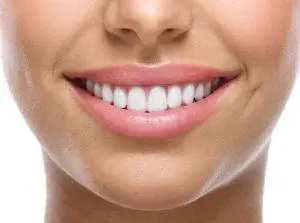Maintaining good oral health is something that everybody wants.
But how to achieve it?
What should we do or stop doing to achieve a high level of oral health?
In this blog, we present a quick checklist of 19 points to help you maintain optimal oral health and achieve a dazzling smile.
Brush twice a day: Has your dentist ever advised you to brush your teeth for two minutes, twice a day? It’s very common for dentists to advise brushing twice a day as it helps remove plaque and prevents cavities.
Floss daily: Flossing removes plaque and debris from between teeth and along the gumline. Be gentle and thorough while flossing.
Use mouthwash: Rinse with an antimicrobial mouthwash to kill bacteria, freshen your breath, and maintain healthy gums. Look for a mouthwash with the ADA seal of approval.
Clean your tongue: Cleaning your tongue helps remove bacteria that can cause bad breath and maintain oral health.
Keep yourself hydrated: Drink plenty of water throughout the day to keep your mouth hydrated as water helps wash away food particles and maintains saliva production.
Limit sugary foods and drinks: Reduce your sugar intake if you want to maintain your oral health. It’s because these types of foods can promote tooth decay. Instead, opt for healthier alternatives like fruits and vegetables.
Avoid tobacco products: Smoking & consuming tobacco products is not just bad for your body’s health but they are equally bad for your oral health because it can lead to several consequences. These consequences include an increased risk of gum disease, oral cancer, and tooth loss. Quitting tobacco is crucial for oral and overall health.
Limit alcohol consumption: Do you consume alcohol? Quit now if you want to maintain your oral health.
Consuming too much alcohol can cause many problems. These problems include dry mouth, bad breath, and an increased risk of gum disease. Consume alcohol in moderation and rinse your mouth with water afterward.
Protect your teeth: If you play contact sports or grind your teeth, wear a mouthguard to protect your teeth from injuries and prevent teeth grinding-related issues.
Visit your dentist regularly: Schedule regular dental check-ups and cleanings. Your dentist can detect and treat dental problems early, preventing further complications.
Practice good nutrition: A balanced diet rich in vitamins and minerals is vital for oral health. Additionally, you can include foods like dairy products, lean proteins, fruits, etc. in your diet.
Chew sugar-free gum: Chewing sugar-free gum stimulates saliva production, which helps neutralize acids and wash away food particles.
Avoid using your teeth as tools: Your teeth are meant for chewing food, not for opening packages or biting nails. Using your teeth as tools can lead to chips, cracks, or other dental injuries.
Practice stress management: High-stress levels can contribute to teeth grinding and jaw clenching. Incorporate stress management techniques like exercise, meditation, or counseling to minimize these habits.
Be mindful of teeth sensitivity: If you experience tooth sensitivity to hot, cold, or sweet stimuli, consult your dentist. Sensitivity may be a sign of underlying dental issues that require attention.
Brush your gums: Gently brush your gums using a soft-bristled toothbrush to remove bacteria and stimulate blood circulation, promoting gum health.
Use fluoride toothpaste: It’s a medical fact that fluoride strengthens tooth enamel and helps prevent tooth decay. Choose a toothpaste with fluoride and the ADA seal of approval. You can also visit your dentist regularly for a fluoride treatment.
Consider dental sealants: Dental sealants can help protect against cavities because they provide an extra layer of protection. Consult your dentist to know whether sealants are appropriate for you or your children.
Maintain proper oral hygiene for dentures: If you wear dentures, clean and care for them as instructed by your dentist to prevent gum irritation and infection.


